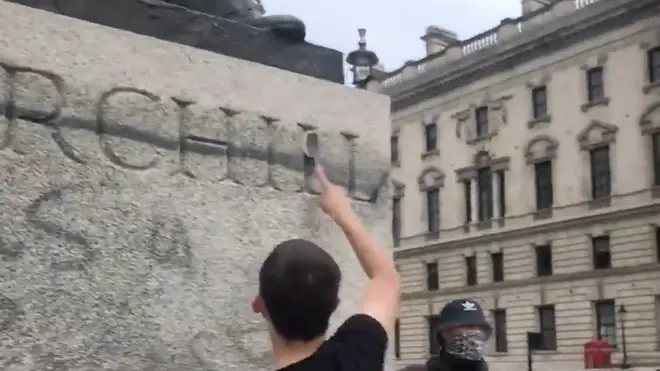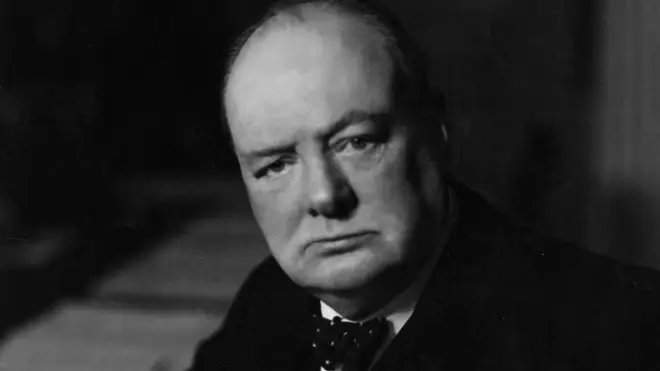
Simon Marks 3pm - 7pm
8 June 2020, 14:56

Members of the public were out early to help scrub clean the statue of Winston Churchill on Parliament Square after it was defaced with graffiti at the weekend.
The monument, which is one of several standing around the square depicting iconic characters in history, was emblazoned with "was a racist" during the Black Lives Matter demonstrations.
But several people who spoke to LBC on Monday morning said it was "one step too far" to vandalise the former prime minister's memorial.
READ MORE: Key moments from a weekend of Black Lives Matter protests
READ MORE: 'History has been made' - Bristolians react to toppling of Edward Colston statue
"As much as we understand the protests and everything that is going on, defacing a national icon is that one step too far," one person who came out to help clean the statue said.
Another added: "It's very disrespectful."
"For someone like Churchill, who fought the biggest racist ever, I think it's extremely bad"
— LBC News (@LBCNews) June 8, 2020
Members of the public have told LBC News why they're cleaning graffiti off a statue of Winston Churchill this morning.
Read more: https://t.co/Wh40saqyBb pic.twitter.com/Cw62Ewylvy
So - where did this come from?
Winston Churchill is maybe best known in the UK for being the leader whose Second World War tactics saw off a potential invasion by the Nazi regime.
But his legacy in other parts of the world is vastly different, having also been remembered as the leader who played a key part in the 1943 Bengal famine in which 3 million people died.
READ MORE: 36 people arrested in London during Sunday's Black Lives Matter protests
His comments about other races and cultures are also well documented - once saying he hated Indians and thought they were "a beastly people with a beastly religion".
Speaking about the famine, he said it was the population's fault for "breeding like rabbits".
Mr Churchill also called Palestinians "barbaric hordes who ate little but camel dung," and once bragged that he had shot three "savages" in Sudan.

On Monday, those who had come out to clean the statue of Britain's wartime leader said that by defacing it, it was creating more work for others.
One told LBC News: "Yes, make the signs, make the protests, but leave everything else out of it because it's just more work for the police.
"It's more work for everyone else - and at the end of the day, you've done it, yet you have to pay for it."